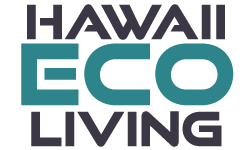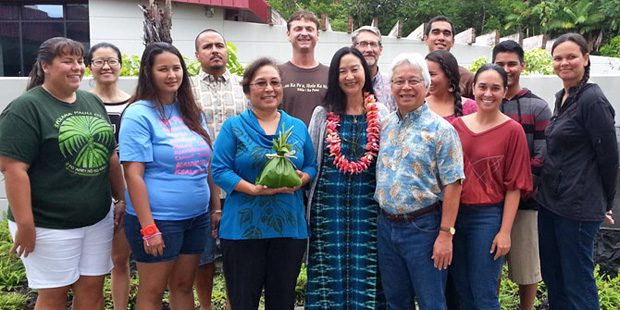The Ford Foundation has awarded $190,000 to the University of Hawaiʻi Foundation to support three Hawaiian language projects at the University of Hawaiʻi—establishing a digital library of Native Hawaiian audio speech behavior; exposing students to traditional Hawaiian sustainability practices and creating content for 40 e-books.
While the Ford Foundation generally does not support language programs, they made a one-time opportunity grant because the University of Hawaiʻi at Hilo’s Ka Haka ʻUla O Keʻelikōlani College of Hawaiian Language is renowned for its language revitalization success at a time when indigenous languages are dying world-wide.
Senior Program Officer for Arts and Culture at the Ford Foundation Roberta Uno notes, “While the college’s efforts have helped lead to the reestablishment of Hawaiian as a living language, the flourishing of Hawaiian arts forms and an increase in cultural identity and pride—much more needs to be accomplished to increase the number of language and culture bearers for the 21st century. This grant recognizes best practice that can be helpful to others involved with language and culture revitalization.”
Related: Reflections on studying the Hawaiian Language
“We are grateful to Roberta and the Ford Foundation for the opportunity to bring together significant work of three important colleagues in Hawaiʻi,” says Keiki Kawaiʻaeʻa, director of UH Hilo’s Ka Haka ʻUla O Keʻelikōlani. “Saving languages is part of our knowledge pool. Language contains the way we see the world—knowledge that has been created by that specific group, knowledge that is unique to any other place in the world. It connects us to our identity of who we are and where we come from. Lose the language and you lose the culture, the knowledge pool and that way of seeing and being in the world.”
Related: The Great Work of Saving the Hawaiian Language
Native Hawaiian audio speech library
UH Hilo Associate Professor Larry Kimura seeks to develop a digital library of Native Hawaiian audio speech behavior samples to promote native-like language acquisition for Hawaiian second-language learners. “This grant will enable a start in editing over 550 hours of audio interview recordings that I documented from among Hawaiʻi’s last fluent Native Hawaiian speakers over a 16 year period from 1972 to 1988,” states Kimura.
“The editing process renders a more pragmatic electronic library of audio selections regarding Hawaiian cultural knowledge on a wide range of subjects and a rich register of traditional Hawaiian first language behavior relevant to Hawaiian language and culture classes taught through the medium of Hawaiian. The utilization of this invaluable audio documentation of Hawaiian voices reconnects and rejuvenates new fluent Hawaiian speakers to a higher level of Hawaiian language ability. With the regeneration of strong speakers of Hawaiian, a more vibrant Hawaiʻi prospers rooted in its own unique language and way of life,” said Kimura.

